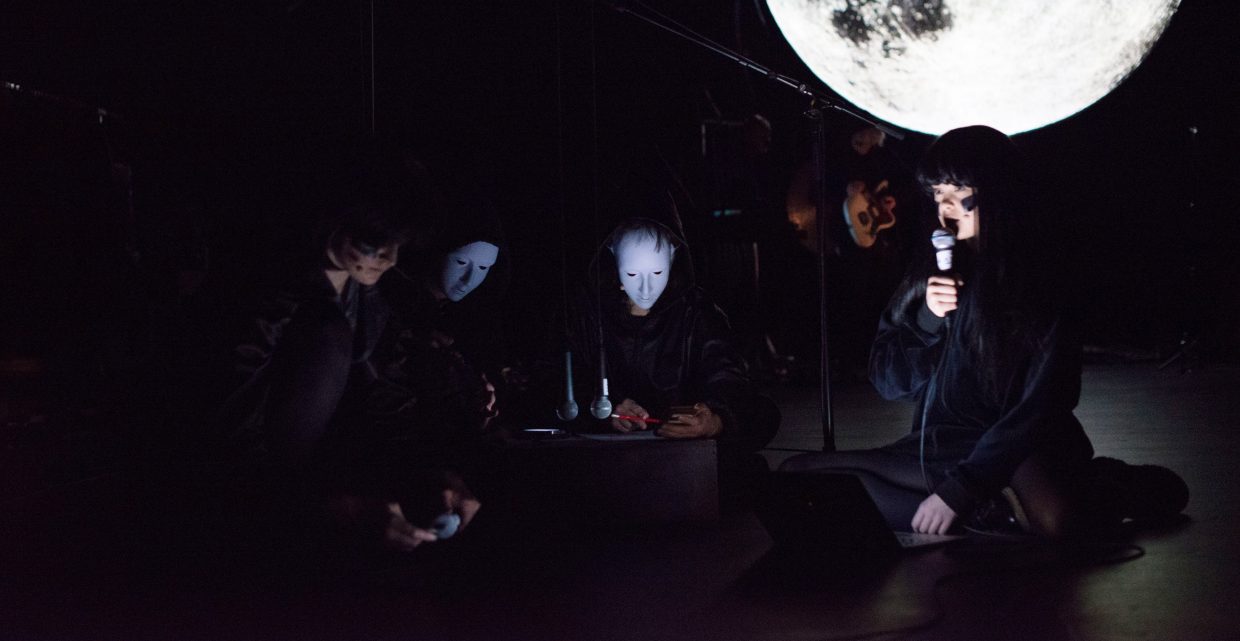Peripeteia and Its Aftermaths
For years now, climate activists have been warning world leaders and everyone who cared to listen that the planet is approaching the tipping point of global warming. In geological terms, the tipping point takes a long time, or anyway, much longer than it does in the terms of drama. Classical Western dramaturgy has a name for this moment—peripeteia, or reversal.
In Book 11 of the Poetics, Aristotle defines peripeteia as “a complete swing in the direction of the action” (in Halliwell 1987:42). That is clear enough. Still, Stephen Halliwell’s commentary brings this idea to bear on our contemporary situation: “Reversal entails a complete contradiction of expectation and intention on the part of the agents,” and that is so because “it presupposes, just as does recognition, a significant element of ignorance at work in the dramatic situation” (116). Furthermore, in the moment of the peripeteia, “the crucial factor is that the direction of the action is tragically overturned, and gives rise to the very opposite of what it seemed set to produce” (117).
It is hard to miss the structural resemblance between this aspect of a tragic narrative and the tragic inevitability that seems to inform the general agreement about the causes of the climate crush today: trying to do one thing, industrialized capitalism produced a complete opposite. If, according to Aristotle, the peripeteia brings about a recognition (anagnârisis), then we need to recognize that the ignorance that precipitated this point of crisis continues, no longer spontaneously and innocently, but in a willed and calculated way. This mistaking of willed ignorance for inevitability suggests that we have passed the point of ecological performance, either in activist or aesthetic spheres.
A peripeteia is not the endpoint, but the point of transition. As in plot structure, so too in the Stanford TDR Consortium issue. Part I of the issue, in T252, is not only diagnosing the turning point but also asking the question: towards what? We split our issue: if articles in this half-issue capture the experience of peripeteia, then we want in the second half to ask what comes next.
Currently, the predominant answer is “catastrophe,” a word on the lips of almost everyone commenting on the climate crisis. But we wonder whether “catastrophe,” rooted as it is in European aesthetic traditions of tragedy, is a workable concept. This issue features the transcript of the performance lecture by Brazilian artist Andreia Duarte and Indigenous leader and activist Ailton Krenak, who speaks of his culture, like so many others the world over, which has already experienced a cataclysm the size of which the world is facing now. Why does it deserve to be called a “catastrophe” now that it threatens the industrialized West, while it did not when it was wrecking other parts of the world for the sake of that same industrialization?
If peripeteia is a reversal, then this reversal needs to steer us away from willed ignorance and towards an active search for solutions. It either leads to catastrophe or to the recognition of the necessity for deep structural changes, not only in the way we use natural resources, but also the ways in which Western culture tells stories about itself; how, where, and by what means these stories are enacted; and the ways in which they justify and rationalize the crimes of extraction, exploitation, colonization, and enormous wealth inequalities the world over. So, if this time around something else needs to come after the peripeteia, what is it? What are alternatives to the Western paradigm of boom and bust, climax and disaster? If the peripeteia forces us to think of alternatives to Western grand narratives, how are we to recognize and enact these different narrative patterns? Which models of behaviour can performance forge that could provide different ways of moving forward?
The associated research is out now in the latest issue of TDR.
Reference: Halliwell, Stephen. 1987. The Poetics of Aristotle. Translation and Commentary. Chapel Hill: The University of North Carolina Press.







